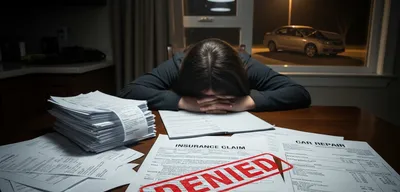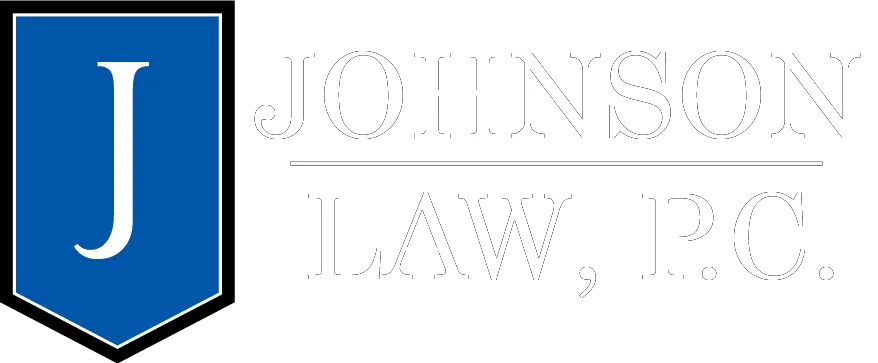We Don't Get Paid Until Your Medical Bills Are Paid First
Personal Injury Legal Services
Don't let insurance companies take advantage while you're vulnerable. Our award-winning attorneys have recovered millions in compensation.

Proven Results for Oregon and Washington Clients
Real achievements from our personal injury practice
Insurance Companies Have Teams of Lawyers - You Need One Too
The moment you're injured, the insurance company's machine springs into action. Within hours, they've assigned an adjuster to your case - a trained professional whose job is to minimize what they pay you. They have teams of lawyers, investigators, and medical experts working to find ways to deny or reduce your claim. You're dealing with this while you're injured, in pain, and trying to figure out how to pay your medical bills.
This isn't a fair fight. You're one person against a billion-dollar company that handles thousands of claims every day. They know the tactics that work. They know most people will accept the first offer because they need money now. They know that without proper legal representation, you don't understand the true value of your claim or how Oregon law protects you.
The most dangerous myth in personal injury cases is that you can handle it yourself. Insurance adjusters will seem friendly and helpful - they're trained to be. They'll tell you that you don't need a lawyer, that they'll "take care of you." But remember: they work for the insurance company, not for you. Every dollar they save on your claim is a dollar in their company's pocket.
Why Your Injury Claim is Worth More Than Their First Offer
Insurance companies make initial settlement offers for one reason: they work. Most people accept them because they don't realize they're entitled to much more. These "quick settlement" offers are calculated to be the minimum they think you'll accept, not what your case is actually worth.
Your injury claim isn't just about your immediate medical bills. You're entitled to compensation for future medical care, lost wages, pain and suffering, emotional distress, and the impact on your daily life. Can you still play with your kids? Do you wake up in pain every morning? Have you missed important family events because of doctor appointments? These human costs have real legal value that insurance companies hope you'll ignore.
Consider B.D., a Vietnam War veteran who suffered a traumatic brain injury when a distracted driver ran a red light and slammed into him. He fell into a coma and underwent emergency neurosurgery to remove a large subdural hematoma. The insurance company's initial offer was less than $2,500. After we got involved, we recovered $450,000 - the full policy limits - representing the true severity of his life-altering injuries. Names have been changed to protect client privacy.
Or take D.F., who was crushed between his car door and a rolling truck when a delivery driver left her vehicle in neutral. He suffered a concussion and complex spine injuries requiring disc arthroplasty surgery. The case involved multiple defendants including a major e-commerce company. We secured $330,000 for his injuries and ongoing medical needs.
View more of our successful case results →
The Legal Framework: What You Need to Prove
While the insurance company's tactics are designed to confuse and pressure you, Oregon law is actually straightforward about your rights. When someone else's negligence causes your injury, they're legally responsible for all the harm that results. But proving this requires understanding four key legal elements - and this is where having experienced representation becomes crucial.
The legal principle of negligence doesn't require proving someone intended to hurt you. It simply means showing they failed to act with reasonable care. A driver who runs a red light while texting, a store that doesn't clean up a spill, a doctor who misses an obvious diagnosis - these are all examples of negligence that creates legal liability.
But here's what insurance companies don't want you to know: you don't have to be a legal expert to have a valid claim. You just need to partner with someone who knows the system inside and out. We handle the legal complexities while you focus on getting better. Our job is to prove their negligence, document your damages, and fight for every dollar you deserve under Oregon law.
Do I Have a Valid Personal Injury Case? The Four Essential Elements
While the previous section introduced the four pillars of a negligence claim, this is where we put them under the microscope. To move from feeling wronged to having a legally viable case, you and your attorney must be able to prove each of these four elements. Think of them as a sequence of building blocks—if even one is missing, the entire claim cannot stand.
This isn't just legal theory; it's a practical test applied to the facts of your accident. It's crucial to understand that this is an all-or-nothing proposition. Proving that a driver was speeding, for example, is not enough on its own. You must also prove that this specific act of speeding directly caused your injuries and that those injuries resulted in measurable harm. Every link in this chain must be forged with clear and convincing evidence.
Successfully establishing these four components is the key that unlocks your right to compensation. As we break down each element—Duty, Breach, Causation, and Damages—in the subsections below, try to map the facts of your own situation to this legal framework. Doing so will give you a powerful understanding of the strengths and potential challenges of your case.
Element 1: Duty of Care
The first element, duty of care, is the legal foundation upon which your entire claim is built. In simple terms, it is the legal responsibility that an individual or entity has to act with a reasonable degree of caution to prevent foreseeable harm to others. This duty isn't something you have to create or negotiate; in many situations, Oregon law automatically imposes it.
For instance, every driver on an Oregon road owes a duty of care to everyone else they share it with—other drivers, motorcyclists, cyclists, and pedestrians. This means they are legally obligated to obey traffic laws, pay attention to their surroundings, and operate their vehicle safely. Similarly, a grocery store owner in Portland has a duty to its customers to maintain the property in a reasonably safe condition, which includes keeping its floors free of spills and hazards that could foreseeably cause a fall.
While this general "reasonable person" standard applies to most daily activities, some relationships create a higher or more specific duty of care. A doctor owes a heightened professional duty to their patient, a commercial truck driver is held to a higher standard than a regular motorist due to the greater potential for harm, and a manufacturer has a duty to consumers to design and produce a safe product.
Element 2: Breach of Duty
Once your attorney has established that the defendant owed you a duty of care, the next critical step is to prove that they violated, or "breached," that duty. A breach occurs when the at-fault party's conduct falls short of the standard of reasonable care that the law required of them in that specific situation. It is the careless action—or negligent inaction—that sets the stage for the accident.
To determine if a breach occurred, we return to the "reasonable person" standard. The key question is: Did the defendant behave as a reasonably prudent person would have under similar circumstances? If the answer is no, they have likely breached their duty of care. This isn't about proving they intended to cause harm, but simply that they failed to act responsibly.
Let's revisit the grocery store example. The store has a duty to keep its aisles safe for customers. A breach of that duty would occur if an employee spills a carton of milk and fails to clean it up or place a warning sign in a timely manner. A reasonable store operator would recognize the spill as a hazard and take immediate steps to remedy it. By failing to do so, the store has breached its duty of care to its shoppers.
Element 3: Causation
Proving that the other party acted carelessly is a major step, but it's not enough to secure your claim. The third, and arguably most critical, element is causation. You must establish a direct and unbreakable link between the defendant's breach of duty and the injuries you sustained. In other words, you have to prove that their specific failure to act reasonably is the reason you were hurt.
In Oregon law, causation is typically examined in two parts:
- Cause-in-Fact: This is often called the "but-for" test. The question is simple: "But for the defendant's negligent act, would the plaintiff have been injured?" If the answer is no, then cause-in-fact is established. For example, "but for" the other driver running the red light, the collision would not have occurred, and you would not have suffered a broken leg. If the accident would have happened regardless of their action, this link is broken.
- Proximate Cause (or Legal Cause): This second part deals with foreseeability. It asks whether your injury was a reasonably foreseeable consequence of the defendant's actions. This legal principle prevents defendants from being held liable for a bizarre or unpredictable chain of events. A driver who speeds can reasonably foresee causing a crash and physical harm. They cannot, however, foresee that the sound of their crash will cause a rare bird to fly into a power line, causing a city-wide blackout. The harm must be a direct and predictable result of the breach.
Element 4: Damages
The final and essential element in a successful personal injury claim is damages. After establishing duty, breach, and causation, you must prove that you suffered actual, legally recognized harm as a result of the defendant's negligence. Put simply, this element answers the question: "What losses did you suffer?" Without demonstrable damages, there is nothing for the at-fault party's insurance to compensate you for, and therefore, no case.
Damages are not just about the injury itself, but about the total impact that injury has had on your life. They are broadly categorized into two types. First are economic damages, which are the tangible financial costs you have incurred. This includes all of your past and future medical bills, from the initial ambulance ride and emergency room visit to ongoing physical therapy, prescription medications, and any necessary future surgeries. It also covers lost wages from time missed at work and, in serious cases, a loss of future earning capacity if you can no longer perform your job.
Second are non-economic damages, which compensate you for the intangible, human costs of the injury. While these don't come with a neat price tag, they are just as real. This category includes compensation for your physical pain and suffering, emotional distress, anxiety, loss of enjoyment of life, and the impact the injury has had on your personal relationships.
Practice Areas
Experienced Legal Representation
Our experienced attorneys provide comprehensive legal services for a wide range of personal injury cases throughout Oregon.

Auto Accidents
Comprehensive legal support for car accident victims, helping you navigate complex insurance claims and work to recover the maximum compensation possible for injuries and damages.

Truck Accidents
In-depth understanding of commercial trucking regulations and proven success fighting corporate entities to secure rightful compensation after truck crashes.

Brain Injuries
Thorough advocacy for traumatic brain injury victims, ensuring proper medical care coordination and working toward maximum recovery for long-term needs and rehabilitation.

Premises Liability
Holding property owners accountable for unsafe conditions that cause injuries, including slip and falls, inadequate security, and dangerous equipment.

Bicycle & Pedestrian Accidents
Dedicated advocacy for vulnerable road users injured by negligent motorists, fighting for full compensation including medical bills, lost wages, and pain and suffering.

Wrongful Death
When negligence results in the loss of a loved one, we help surviving family members seek justice and financial stability by holding the at-fault party accountable.

All Practice Areas
Explore our complete range of personal injury legal services. From motorcycle accidents to product liability, we provide comprehensive representation across all areas of injury law.
Your Personal Injury Case Journey
Clear steps from injury to compensation - we guide you through every stage
Seek Immediate Medical Treatment
Your health comes first. Get professional medical evaluation immediately, even for seemingly minor injuries. This creates crucial documentation linking the accident to your injuries.
Document Everything & Preserve Evidence
Take photos of the scene, damage, and injuries. Gather witness information. Evidence disappears quickly, so act fast to preserve what happened.
Report the Incident (Carefully)
File official reports with police and insurance. Stick to facts only - never admit fault or apologize. What you say can be used against you later.
Consult with Our Legal Team
Get professional legal advice before accepting any settlement offers. We level the playing field against insurance companies and their teams of lawyers.
Investigation & Claim Filing
We conduct thorough investigations, gather additional evidence, work with experts, and file formal demands with detailed documentation of your damages.
Negotiation & Resolution
We fight for maximum compensation through skilled negotiation. If needed, we take your case to trial to secure the justice you deserve.
Critical Deadlines: Oregon's Statute of Limitations for Personal Injury
While understanding the steps of a claim is crucial, none of it matters if you wait too long to act. Oregon law, like that of every other state, imposes a strict deadline for filing a personal injury lawsuit. This legal time limit is known as the statute of limitations, and it is one of the most unforgiving rules in the entire legal system.
For the vast majority of personal injury cases in Oregon—including car accidents, and slip and falls,—you have two years to file a lawsuit. This two-year clock typically begins to tick on the date your injury occurred. This is not a suggestion; it is an absolute legal barrier. If you fail to file your lawsuit within this two-year window, the court will almost certainly dismiss your case, and you will forever forfeit your right to seek any compensation, no matter how clear the other party's fault or how severe your injuries are.
What is the General Deadline in Oregon?
As the preceding section established, the most critical deadline in Oregon personal injury law is the two-year statute of limitations. Codified in Oregon Revised Statute (ORS) 12.110, this law dictates that for the majority of injury claims—from car accidents to premises liability—a formal lawsuit must be filed within two years from the date the injury occurred. This means if you were injured in a collision on May 15, 2024, you must file your lawsuit with the appropriate Oregon court on or before May 15, 2026.
Are There Exceptions to This Rule?
While the two-year deadline serves as the default for most injury claims, Oregon law carves out several critical exceptions that can significantly alter this timeline. These are not loopholes but legal provisions designed to address specific, complex situations. Misunderstanding or misapplying these exceptions is one of the most catastrophic errors a person can make, as it can prematurely extinguish your right to a claim.
The most urgent exception involves claims against any Oregon government body—whether it's a city, county, or state agency. If your injury was caused by a public employee or a hazard on public property, you are not given two years. Instead, you must file a formal "tort claim notice" within a mere 180 days of the injury. For a wrongful death claim against a government entity, this deadline is one year. Failure to provide this specific notice on time will almost certainly bar your claim forever.
What Compensation Can I Recover in an Oregon Injury Claim?
After establishing that you have a valid claim and are within the legal time limits to file, the natural next question is: what is my case actually worth? When you pursue a personal injury claim, you are seeking financial compensation for the full range of harm you have suffered due to someone else's negligence. In legal terms, this compensation is referred to as "damages." The fundamental goal of awarding damages is not to create a financial windfall, but to "make you whole" again—to restore you, as much as money can, to the position you were in before the accident occurred.
Economic Damages (Specific Damages)
Economic damages, also known as "specific damages," form the tangible foundation of your financial recovery. These are the direct, out-of-pocket losses that can be calculated and proven with invoices, bills, and pay stubs. Our first objective is to meticulously track and document every single one of these costs to ensure that the financial burden of the accident does not fall on your shoulders.
The most significant category of economic damages is typically medical expenses. This covers the full spectrum of your healthcare costs, both past and future. It includes everything from the initial ambulance transport and emergency room visit to hospital stays, surgeries, prescription medications, physical therapy, and necessary medical devices. Crucially, if your injury requires long-term treatment or future procedures, we work with medical and financial experts to project these future costs, ensuring your settlement accounts for the care you will need years down the road.
Non-Economic Damages (General Damages)
While economic damages cover the calculable financial toll of an accident, some of the most profound impacts of an injury don't come with an invoice. This is where non-economic damages, also known as "general damages," come into play. These damages are designed to compensate you for the intangible, human suffering and the negative effect the injury has had on your quality of life. Though they don't have a specific price tag, Oregon law recognizes that these losses are just as real and devastating as any medical bill.
Non-economic damages encompass several key areas of harm. The most well-known is pain and suffering, which refers to the physical pain, discomfort, and anguish you have endured and may continue to endure because of your injuries. This is closely related to emotional distress, which provides compensation for the psychological impact of the trauma, including anxiety, depression, fear, sleep disturbances, and post-traumatic stress disorder (PTSD).
Oregon's Law on Comparative Negligence
While we fight to recover the full value of all your economic and non-economic damages, it is critical to understand a legal doctrine that can significantly impact your final compensation: comparative negligence. In many accidents, an insurance company or defense attorney will argue that you, the injured party, were also partially to blame for the incident. Oregon law has a specific rule for handling these situations.
Oregon follows a "modified comparative negligence" system with a 51% bar rule. This means that you can still recover damages even if you are found to be partially at fault, but your total compensation will be reduced by your percentage of fault. For example, if a jury determines that your total damages are $100,000 but finds that you were 20% responsible for the accident (perhaps for being slightly over the speed limit), your award would be reduced by 20%, leaving you with $80,000.
Here is the critical part: the 51% bar. Under Oregon law, if you are found to be 51% or more at fault for the accident, you are barred from recovering any compensation at all. Your claim becomes worthless. Insurance companies are acutely aware of this rule and will use it as a powerful negotiation tactic. They will aggressively search for any evidence—however minor—to shift blame onto you, hoping to push your percentage of fault over that 50% threshold to deny your claim entirely. This is why having a skilled attorney is so vital. We work to build a powerful case that not only proves the other party's negligence but also defends you against unfair allegations of fault, protecting your right to a full and fair recovery.
Why Choose Johnson Law, P.C. for Your Oregon Personal Injury Case?
Choosing the right legal advocate is the most critical decision you will make in your journey toward justice. After learning about the complexities of Oregon's laws—from the strict statute of limitations to the unforgiving 51% comparative negligence rule—it becomes clear that the attorney you hire can make all the difference. You need more than just a lawyer; you need a dedicated partner who understands the local legal landscape and is singularly focused on protecting your interests.
At Johnson Law, P.C., we are not a high-volume national firm that treats clients like case numbers. We are an Oregon-based practice, deeply rooted in the communities we serve. This local focus gives our clients confidence. We know the local courts, we understand the tendencies of the judges, and we have extensive experience countering the specific tactics used by insurance companies operating here in Oregon. This insider knowledge is the foundation of our legal strategy and our proven track record of securing favorable outcomes for our clients.
We believe that justice should not be reserved for those who can afford to pay upfront. The physical, emotional, and financial stress of an injury is enough of a burden. That is why we handle every personal injury case on a contingency fee basis. This is our guarantee to you: you will not pay a single dollar in attorney fees unless and until we win your case and recover compensation for you. This approach removes all financial risk, allowing you to access top-tier legal representation and focus completely on your recovery, confident that you have a dedicated team fighting for you every step of the way.
Our Personal Injury Services
Comprehensive Personal Injury Representation
We provide complete legal services for personal injury cases with proven results and client-first approach.
Deep Understanding of Oregon Law
Our comprehensive understanding of Oregon-specific statutes, local court rules, and legal precedents helps us fight for your maximum recovery.
Proven Track Record of Success
We have secured millions of dollars in settlements and verdicts for clients across all types of personal injury cases.
Contingency Fee Guarantee
No upfront costs, no hourly rates. We only get paid when you do, and only after your medical bills are paid first.
Thorough Investigation
We conduct comprehensive investigations, gather evidence, interview witnesses, and work with experts to build your case.
Medical Documentation
We ensure proper documentation of all injuries and work with medical experts to establish the full extent of your damages.
Aggressive Negotiation
We handle all communications with insurance companies and fight tenaciously for fair compensation that covers all your damages.
Client Reviews
What Our Personal Injury Clients Say
Real experiences from clients who trusted us with their most important cases
Take Control: Schedule Your Free, No-Obligation Case Evaluation
You have now been equipped with a comprehensive understanding of your rights and the legal journey ahead. Knowledge is power, but action is what creates change. The single most important action you can take right now is to get a professional, risk-free evaluation of your case from a team that is dedicated to fighting for Oregonians just like you. This is your opportunity to move from being a victim of circumstance to being an active participant in your own recovery.
Scheduling a free consultation is not about committing to a lawsuit; it's about gaining clarity and taking back control. It's a confidential conversation where you can tell your story, ask your most pressing questions, and receive an honest, straightforward assessment of your legal options. There is no pressure and no obligation—only clear guidance to help you decide on the best path forward for you and your family.
What to Expect During Your Free Consultation
We understand that the thought of speaking with an attorney can feel intimidating, especially when you are already dealing with the stress of an injury. That is why we have designed our initial consultation process to be a simple, respectful, and completely confidential conversation focused entirely on you and your concerns. This is not a high-pressure sales pitch; it is a genuine opportunity for us to listen and for you to get the clear, honest answers you deserve.
During our meeting, the most important part is hearing your story. We will listen carefully as you describe the details of the accident, the nature of your injuries, and the profound ways this event has impacted your work, your family, and your daily life. This is your time to ask us anything. We encourage you to bring all of your questions, whether they are about the legal process, our firm's experience, or what to expect moving forward.
After listening to your account and reviewing any documents you have, we will provide you with our straightforward professional opinion. We will explain how Oregon law applies to the specific facts of your case, discuss the potential strengths and challenges we see, and outline a potential strategy for pursuing the compensation you need. Our commitment is to provide this guidance in plain, easy-to-understand language, so you leave the conversation feeling informed and empowered, not confused. You will walk away with a clear understanding of your legal rights and options, with absolutely no obligation to hire our firm.
How to Prepare for Our Meeting
To help us make our meeting as productive as possible, we encourage you to gather any relevant information you have on hand. While your story is the most important piece of the puzzle, bringing certain documents can give us a powerful head start in evaluating the strength of your claim. Think of it as assembling the initial evidence file—the more pieces we have, the clearer the picture becomes.
Please do not worry if you can't locate everything on this list. We are here to help you track down what's missing. If you have them available, consider bringing the following items to your consultation:
- Official Reports: A copy of the police report for a vehicle accident or the business's incident report for an injury on their property. This provides the official initial account of what happened.
- Photos and Videos: Any pictures or videos you took of the accident scene, property damage, the specific hazard that caused your fall, and your visible injuries as they have progressed over time.
- Insurance Communications: All information you have for the at-fault party's insurance company, as well as any letters, emails, or business cards you have received from their insurance adjuster.
- Medical Information: A list of the doctors, hospitals, and clinics where you have received treatment. Any medical bills, receipts, or Explanation of Benefits (EOB) statements you have received are also incredibly helpful.
- Proof of Lost Income: Recent pay stubs or a letter from your employer can help us begin to calculate the wages you have lost while unable to work.
- Your Questions: It is completely normal to have many questions. Jotting them down beforehand ensures we address every one of your concerns during our conversation.
Again, this list is just a guide. The most critical step is the one you are taking now—seeking professional advice. We can work together to gather the rest.
Personal Injury FAQs
Frequently Asked Questions About Personal Injury Claims
Find answers to common questions about personal injury law and your legal rights in Oregon.
How long do I have to file a personal injury claim in Oregon?
In Oregon, you generally have two years from the date of the injury to file a personal injury lawsuit. However, there are important exceptions, such as claims against government entities which require notice within 180 days. Contact us immediately to ensure you don't miss any critical deadlines.
What compensation can I recover in a personal injury case?
You may be entitled to economic damages (medical expenses, lost wages, future care costs) and non-economic damages (pain and suffering, emotional distress, loss of enjoyment of life). The specific compensation depends on the severity of your injuries and the impact on your life.
Do I need a lawyer for my personal injury case?
While not legally required, having an experienced attorney significantly improves your chances of receiving fair compensation. Insurance companies often offer lower settlements to unrepresented claimants. We handle all aspects of your case while you focus on recovery.
What if I was partially at fault for the accident?
Oregon follows comparative fault rules, meaning you can still recover compensation even if you were partially at fault, as long as your fault is less than 51%. Your compensation will be reduced by your percentage of fault.
How much does it cost to hire Johnson Law, P.C.?
We work on a contingency fee basis, meaning you pay no attorney fees unless we recover compensation for you. Additionally, we charge our fee only after your outstanding medical bills are paid, ensuring your recovery comes first.
What makes personal injury cases different from other legal matters?
Personal injury cases require proving the four elements of negligence: duty of care, breach of duty, causation, and damages. They also involve complex insurance negotiations, medical documentation, and strict deadlines that make experienced legal representation crucial.
How do you prove negligence in a personal injury case?
Proving negligence requires establishing that the defendant owed you a duty of care, breached that duty, and that this breach directly caused your injuries and damages. We gather evidence, interview witnesses, and work with experts to build a compelling case.
What should I do immediately after an accident?
Seek immediate medical attention, document everything with photos and videos, report the incident but be careful what you say, avoid admitting fault, gather witness information, and consult with an experienced personal injury attorney before accepting any settlement offers.
Were You Injured Due to Someone Else's Negligence?
Let Experienced Trial Lawyers Fight For You
Available 24/7 • No Fee Unless We Win
Over $50 Million Recovered for Oregon Injury Victims

